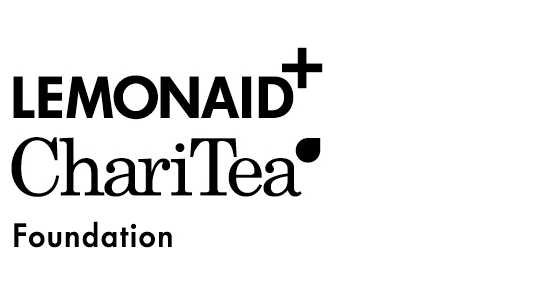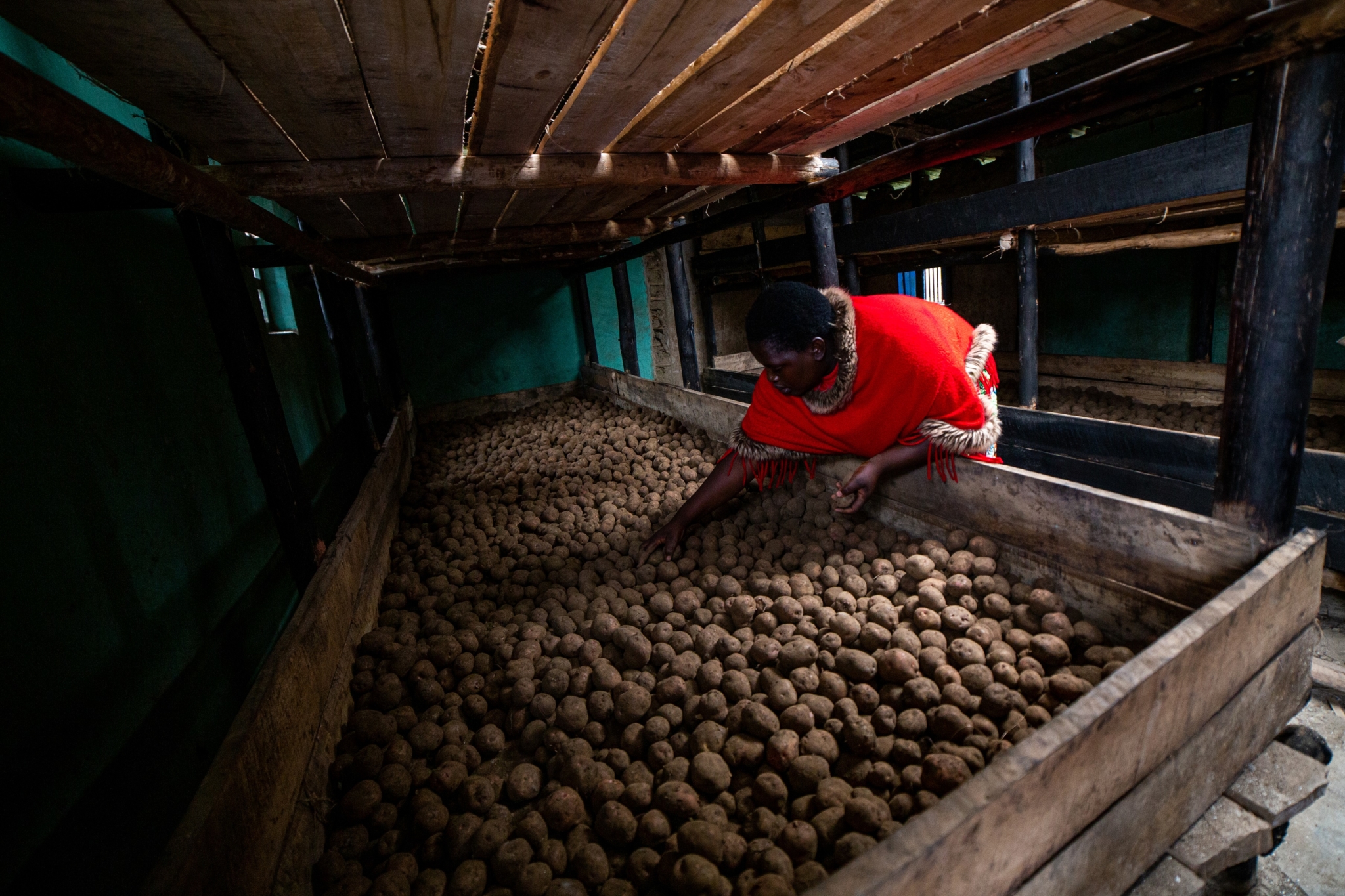The Rwandan NGO “Hand in Hand for Development” (short: HIHD) works to improve the living conditions of marginalised population groups and to (re)integrate them into society. Already 2019, the Lemonaid & ChariTea Foundation supported the organisation in promoting two youth and women’s cooperatives. Thanks to training in entrepreneurial skills and easier access to financial opportunities, the members of the cooperatives were able to increase their income and improve their quality of life and consequently their self-reliance. After a successful first year, the project is now being supported for another two years and the number of supported cooperatives is being expanded.
Rwanda’s history is marked by the conflict between the country’s two largest population groups, the Hutu and the Tutsi. The conflict culminated in a tragic genocide of the Tutsi minority in 1994. Despite continuing tensions between the two groups, the country has made considerable progress on many levels in the recent years. Rwanda’s government has stabilised, successfully reduced corruption and ensured an economic upswing. In Africa, the country is considered a role model for economic modernisation. Nevertheless, Rwanda is still struggling with major socio-economic challenges. Almost 40% of the population still lives below the poverty line. In particular, the 70% who work in agriculture can hardly live from their work and are often affected by levels of poverty. Furthermore, feeding the population is one of the biggest problems in the very densely populated country.
The woman in Rwanda – caught between management level and marginalised population group
Until now the role of women in Rwanda has moved between two poles. The role of the woman in society is traditionally inferior to the man. After the war, however, the government had to react to the loss of many male guardians. Thus, many new laws were passed that gave more rights to women. Women are now allowed to inherit or become heads of families and other pro-women laws have been put into place. For example, at least 30% of decision-making boards must be made up of women. Thus, today about 61% of all members of parliament are women. This puts Rwanda far ahead of many countries in terms of women’s rights. Despite all this, the traditional idea of the role of women still dominates in the minds of many people. This pushes many economically and socially disadvantaged groups of women to the margins of society.
The local NGO Hand in Hand for Development, works with disantvanteged women’s groups such as widows, young mothersor infected with HIV. They also support groups which are often excluded from society: unemployed youth, people with disabilities or orphans. The organisation has always been driven by one goal: the desire to ensure the well-being of society as a whole. In particular, this means strengthening the self-reliance and living conditions of those who are unable to do so on their own. For the past 8 years they implemented a diverse range of projects: strengthening entrepreneurial skills of women and young people, promoting income-generating projects, protecting human and children’s rights as well as securing health, water and sanitation services.
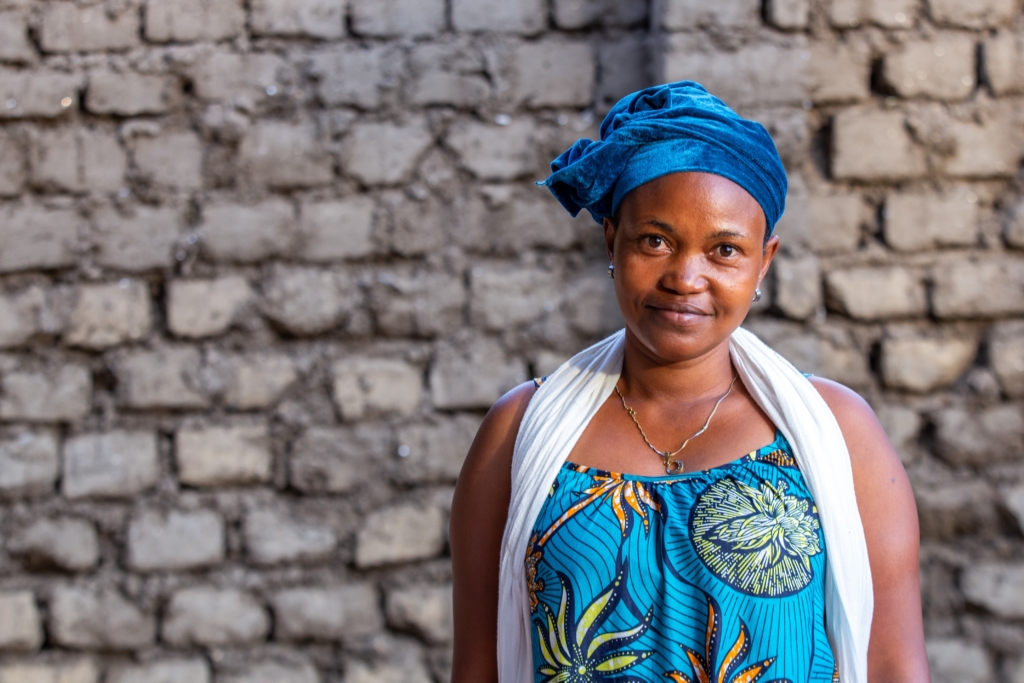
Strengthening of economic self-reliance
The western province of Rwanda, the Rubavu district which is a boarding region to Congo, is particularly marked by the past years of conflicts. In addition to the numerous traumatic experiences that many people still suffer, the conflict left behind many young mothers, widows and young people. Due to high unemployment, many took refuge in drug use and crime or became infected with HIV as a cause of sexual abuse. Despite great efforts invested in this region, many obstacles remain. It is often that the named groups are not reached by the government’s social programmes or are not aware how to access them through a lack of education.
HIHD’s project “Grassroots youth and women empowerment initiatives for self-reliance of Rubavu District” addresses the problems of young mothers, widows, youth and other vulnerable women. It promotes the strengthening of youth and women’s cooperatives with the aim of supporting their members to achieve greater economic self-reliance and consequently also social independence through higher income. To do so, the NGO provides assistance in developing important skills in the field of finance and business management. Furthermore it facilitates access to finance so that income-generating activities can be created in the areas of sewing, weaving, tailoring, handicrafts and agriculture.
Access to finance creates jobs
Two cooperatives, with 20 women each, were selected for the one-year pilot phase. The Rwandan Art cooperative from the Gisenyi region, which is involved in handicrafts, tailoring and other small businesses, and the Twisungane Rungu cooperative from the Mudende region, which is engaged in agriculture. The first part of the project focuses on capacity building. In a 5-day workshop, the NGO taught important skills in financial literacy, saving education, leadership, business management and governance to ensure sustainable business development and income for the project participants. This is followed by an organised meeting with microfinance institutions and banks. It serves to provide information on loans, savings and other banking services and to encourage the women to accumulate savings. In the same session, bank accounts were opened for each cooperative and their members.
Probably the most important step of the project phase are two rotating loans worth Rwf 6,000,000 each (an equivalent to about €5790 as of 12/2019). With this credit, each member of the cooperative can carry out an income-generating activity of choice. Together with the HIHD team, the members have decided which member will receive a credit of how much, depending on their personal capacities and the respective activities. The loans are repaid on a monthly basis or depending on the harvest periods in agriculture. The advantage: the interest rate of 10% is much lower than usual loans directly from the bank for microcredits. This makes it easier to build up their business by taking the pressure off and minimising potential risk. The repaid funds are then redistributed as loans to guarantee continuity in business development.
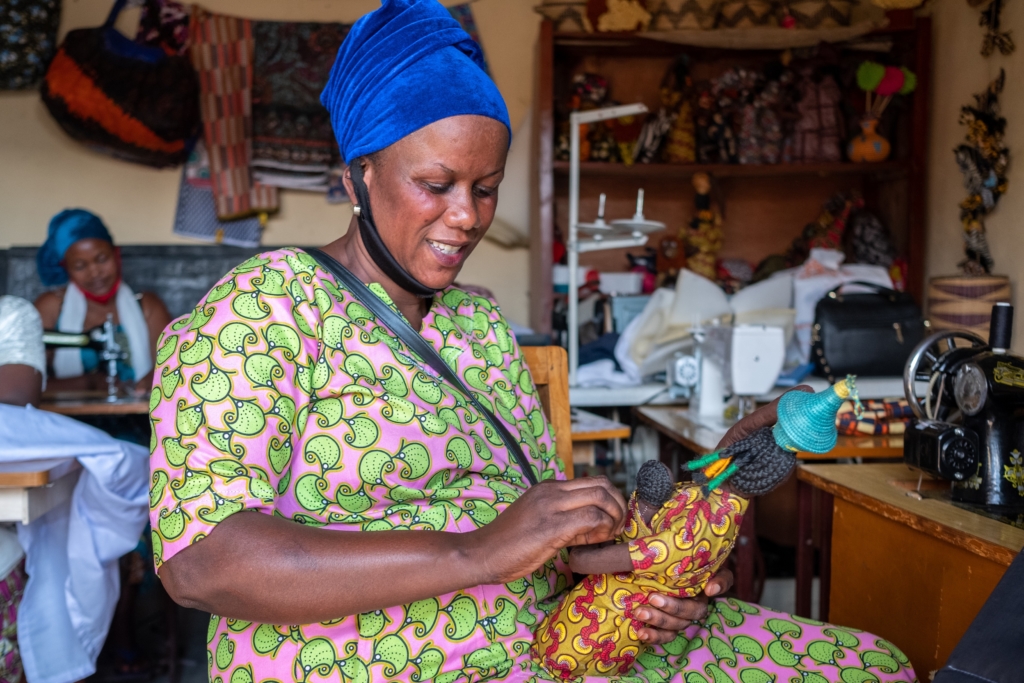
A successful pilot phase: more empowerment and a higher income
The results of the pilot phase are promising: all 40 participants were able to establish an income-generating activity with their share of the loan and thus create jobs for themselves. Particularly encouraging: the participants were able to increase their income from $1 a day to an average of $4 a day. This has led to an improvement in their own quality of life and that of their families. Some women involved in agriculture and animal husbandry were even able to invest in more land and animals to expand their business.
By strengthening their financial and entrepreneurial skills, members of the cooperatives have experienced that they do not have to depend on their husbands or others. This in turn has led to the improvement of many marital relationships. With their own increased income, the women feel that they can be involved in important household decisions. They also feel that they are able to contribute to their community and are thus strengthened as a social member of it.
Prospects for a sustainable success
An outbreak of the Ebola virus in a neighbouring region and the global COVID-19 pandemic have unfortunately posed a considerable challenge to the success of the project. The members of the Rwandan Art Group were particularly hit hard by the pandemic. Some were unable to continue their businesses due to the lockdown measures. In contrast, the group involved in agriculture and livestock farming did not experience any losses. They were able to continue their business very profitably. Despite some setbacks, the first year of implementation shows great potential to make a significant contribution to improving living conditions and self-reliance. The commitment of all members shows that the will to become more self-reliant and responsible is evident, which gives hope for a sustainable success.
Positive impact enables support for further cooperatives
In a two-year continuation, in addition to the two cooperatives from the first year, two new groups will receive financial support and assistance in expanding their businesses for self-reliance. The new cooperatives consist of 20 and 25 young women and young mothers respectively. As in the pilot phase, HIHD will also train these groups in financial and entrepreneurial skills. They bring them into contact with a microfinance institution or bank before distributing loans to them.
In the continuation of the project, HIHD will also help the groups to formally register as cooperatives, support the construction of a warehouse for seed storage and encourage an exchange between the cooperatives. The aim is to share experiences and successful strategies to strengthen the individual cooperatives. The experience from the first year also shows that regular monitoring and continuous project support are important keys to the success of the implementation and the self-reliance of the women. This will therefore be continued and intensified in a continuation of the project.
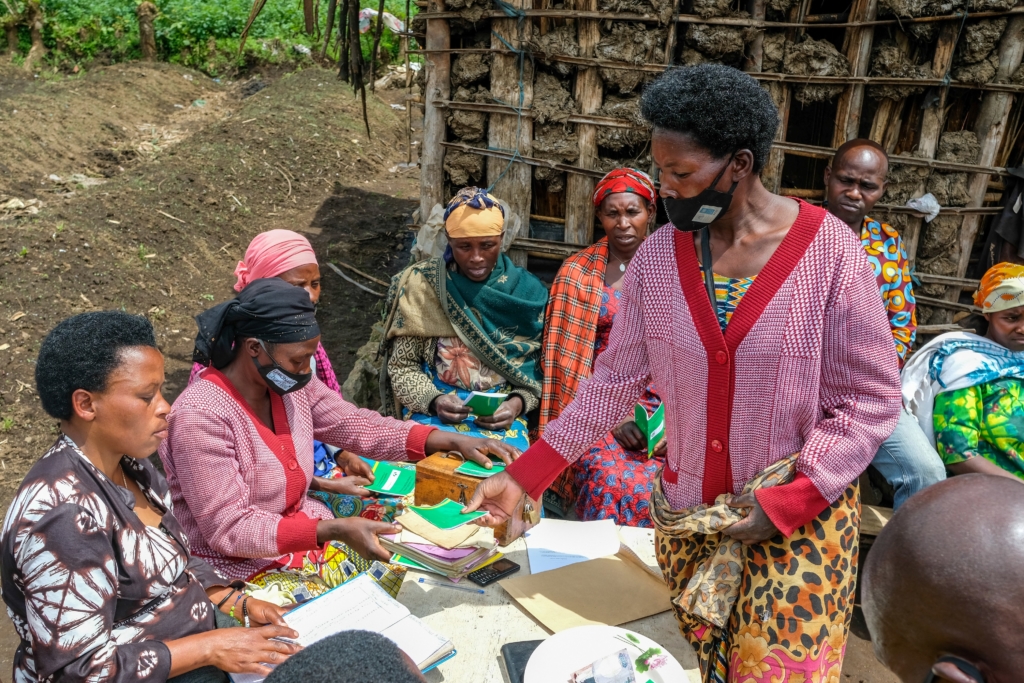
Overcoming new challenges
As a result of the Corona pandemic, also new challenges have arisen for the living conditions of women in the western province of Rwanda. Many women in small businesses cannot continue their businesses as usual and have to cope with less income again. Due to the isolation, there is a risk that domestic violence will increase and information on how to deal with the virus responsibly will not reach many women and families. The organisation does not want the more difficult conditions to go unnoticed. They are already trying, and will try even harder in the coming months, to mitigate the resulting setbacks. HIHD educates about the dangers of the pandemic, hygiene rules and measures to prevent possible negative consequences in the private household.
The Lemonaid & ChariTea Foundation supports the project by providing financial support for the trainings, the credit programme, the coverage of administrative and logistical costs, as well as annual external audits and the construction of the warehouse. In addition, the funding covers the costs for Corona hygiene measures and a capital increase for the participants who are particularly affected by the pandemic.
Overall the project contributes to reducing poverty in the western province of Rwanda and to enabling marginalised groups of people to participate economically and socially. The project participants experience financial independence, a strengthened personal self-reliance and realise that they do not have to be dependent on anyone. They can meet their own basic needs and contribute to improving the living conditions of their community and family. At the same time, becoming aware of their own autonomy leads to improved relationships in their own households and a reduction of discrimination and stigmatisation.
